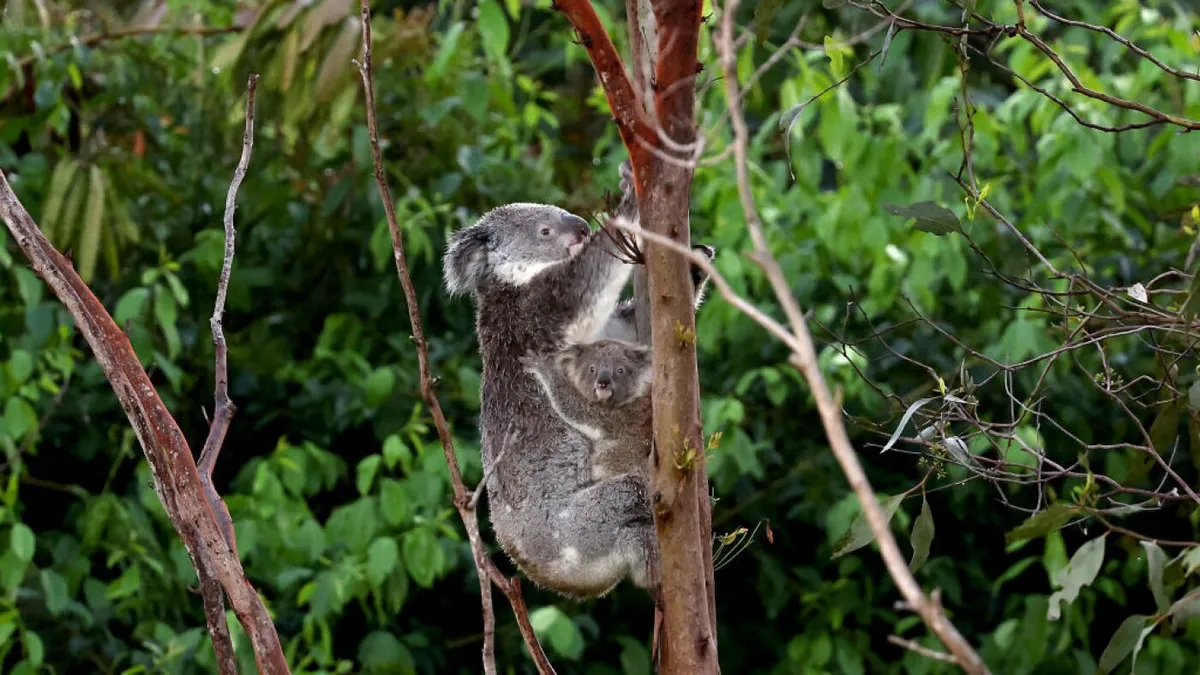
A groundbreaking vaccine has received approval to combat chlamydia, a disease that poses a significant threat to the beloved Australian marsupial, the koala. This innovative measure, hailed as a world-first by researchers, aims to mitigate the alarming impact of chlamydia, which is a leading cause of death among koalas.
Researchers at the University of the Sunshine Coast (UniSC) in Australia announced on Wednesday that it took over a decade to develop this single-dose vaccine. Remarkably, this vaccine does not require any booster shots, offering hope for reducing the rapid spread of this devastating disease. The urgency of this development is underscored by the fact that some koala colonies are nearing local extinction, particularly in regions like South East Queensland and New South Wales. In these areas, infection rates within koala populations are alarmingly high, often around 50% and in some cases reaching up to 70%, according to microbiology professor Peter Timms, who led the research team.
Chlamydia can have dire consequences for koalas, causing a range of health issues including blindness and starvation, as infected koalas struggle to find trees for food. According to Koala Conservation Australia, the disease can also lead to infertility and severe bladder damage, resulting in inflammation and blood loss. Chlamydia is transmitted among koalas through various means, including mating, infected discharges, and even at birth. Baby koalas, or joeys, are at risk of contracting the disease by consuming pap, a substance produced by their mothers that resembles feces, if their mother is infected.
While antibiotics have been employed to treat chlamydia in koalas, their effectiveness is limited. Antibiotics do not prevent future infections and can lead to gastrointestinal side effects, making it challenging for koalas to digest their primary food source, eucalyptus leaves. In severe cases, where chlamydia has advanced significantly, euthanasia may become the only viable option for affected koalas.
Given the limitations of current treatments, scientists are optimistic about the potential of the new vaccine. Sam Phillips, a senior researcher at UniSC, stated that the vaccine has undergone extensive testing on both wild and captive koalas. It is based on the major outer membrane protein (MOMP) of Chlamydia pecorum and offers three levels of protection: it reduces infection rates, prevents the progression to clinical disease, and in some instances, reverses existing symptoms. A study led by Phillips last year found that this vaccine significantly reduced signs of chlamydia during a koala's breeding age and decreased mortality from the disease by an impressive 64%.
The vaccine has received approval for production and widespread use from the Australian Pesticides and Veterinary Medicines Authority (APVMA). The agency confirmed to NPR that it authorized the use of the vaccine in koalas starting in June, with the permit extending through June 2027. This significant step forward offers hope not only for the conservation of koalas but also for the preservation of Australia’s unique biodiversity.